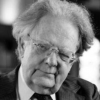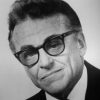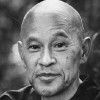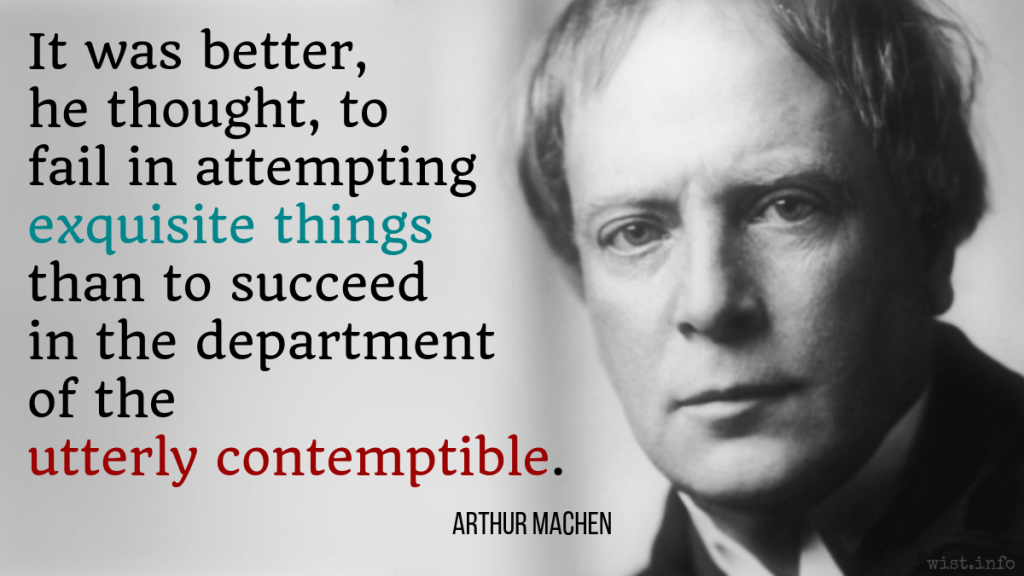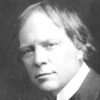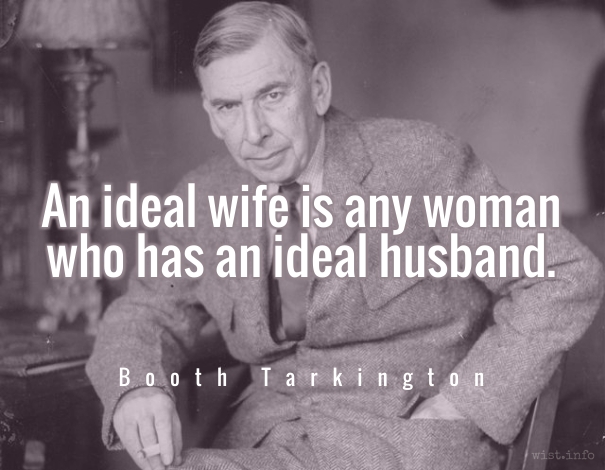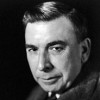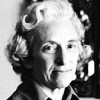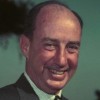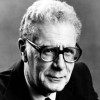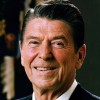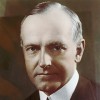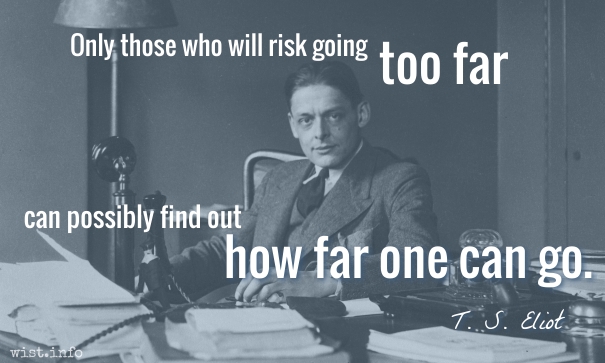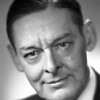It is erroneous to tie down individual genius to ideal models. Each person should do that, not which is best in itself, even supposing this could be known, but that which he can do best, which he will find out if left to himself. Spenser could not have written Paradise Lost, nor Milton the Faerie Queene. Those who aim at faultless regularity will only produce mediocrity, and no one ever approaches perfection except by stealth, and unknown to themselves.
William Hazlitt (1778-1830) English writer
“Thoughts on Taste,” Edinburgh Magazine (1819-07)
(Source)
Quotations about:
ideal
Note not all quotations have been tagged, so Search may find additional quotes on this topic.
Sometimes in a vision, I see a world of happy human beings, all vigorous, all intelligent, none of them oppressing, none of them oppressed. A world of human beings aware that their common interests outweigh those in which they compete, striving toward those really splendid possibilities that the human intellect and the human imagination make possible such a world as I was speaking of can exist if everyone chooses that it should. And if it does exist, if it does come to exist, we shall have a world very much more glorious, very much more splendid, more happy, more full of imagination and happy emotions, than any world that the world has ever known before.
Bertrand Russell (1872-1970) English mathematician and philosopher
Interview by Woodrow Wyatt, BBC TV (1959)
Collected in Bertrand Russell's BBC Interviews (1959) [UK] and Bertrand Russell Speaks His Mind (1960) [US]. Reprinted (abridged) in The Humanist (1982-11/12), and in Russell Society News, #37 (1983-02).
Scratch the surface of most cynics and you find a frustrated idealist — someone who made the mistake of converting his ideals into expectations.
Peter Senge (b. 1947) American systems scientist, lecturer, academic
The Fifth Discipline, Part 3, ch. 8 (1990)
(Source)
I do so dearly believe that no half-heartedness and no worldly fear must turn us aside from following the light unflinchingly.
J.R.R. Tolkien (1892-1973) English writer, fabulist, philologist, academic [John Ronald Reuel Tolkien]
Letter to Edith Bratt (1913)
(Source)
Bratt was Tolkien's fiancee, who was apprehensive about the personal and social ramifications of converting to Catholicism. Tolkien's mother's conversion had been similarly difficult.
Experience is nearly always commonplace; the present is not romantic in the way the past is, and ideals and great visions have a way of becoming shoddy and squalid in practical life. Literature reverses this process.
Northrop Frye (1912-1991) Canadian literary critic and literary theorist
The Educated Imagination, Talk 3 “Giants in Time” (1963)
(Source)
The world is not what anyone wished for, but it’s what everyone wished for.
James Richardson (b. 1950) American poet
“Vectors: 56 Aphorisms and Ten-second Essays,” Michigan Quarterly Review, #11 (Spring 1999)
(Source)
It occurs to me that there is a proper balance between not asking enough of oneself and asking or expecting too much. It may be that I set my sights too high and so repeatedly end a day in depression. Not easy to find the balance, for it one does not have wild dreams of achievement, there is no spur even to get the dishes washed. One must think like a hero to behave like a merely decent human being.
May Sarton (1912-1995) Belgian-American poet, novelist, memoirist [pen name of Eleanore Marie Sarton]
Journal of a Solitude, “February 4th” (1973)
(Source)
Boredom therefore can arise from the cessation of habitual functions, even though these may be boring too. It is also the shriek of unused capacities, the doom of serving no great end or design, or contributing to no master force.
The ideal has many names, and beauty is but one of them.
W. Somerset Maugham (1874-1965) English novelist and playwright [William Somerset Maugham]
Cakes and Ale (1930)
(Source)
The best is the enemy of the good.
[Il meglio, e l’inimico del bene]
Voltaire (1694-1778) French writer [pseud. of Francois-Marie Arouet]
Letter to the Duc de Richelieu (18 Jun 1743)
(Source)
A signature phrase of Voltaire's, attributed (by him) to a wise or sage Italian. His French translation is "Le mieux est l’ennemi du bien." Other mentions include an entry on "Art Dramatique" in his Philosophical Dictionary (1764), and the poem "La Bégueule" (1772).
Don’t let it be forgot
That once there was a spot
For one brief shining moment that was known
As Camelot.Alan Jay Lerner (1918-1986) American dramatist, lyricist, composer
“Finale Ultimo (Camelot Reprise)” [Arthur], Camelot(1960; 1967)
(Source)
Based on T.H. White, The Once and Future King (1958).
Each evening, from December to December,
Before you drift to sleep upon your cot,
Think back on all the tales that you remember
Of Camelot.
Ask ev’ry person if he’s heard the story,
And tell it strong and clear if he has not,
That once there was a fleeting wisp of glory
Called Camelot.Alan Jay Lerner (1918-1986) American dramatist, lyricist, composer
“Finale Ultimo (Camelot Reprise)” [Arthur], Camelot(1960; 1967)
(Source)
Based on T.H. White, The Once and Future King (1958).
If you believe you have a just cause, an important message, or a key contribution to make, you will be just as innovative as a college freshman desperate to see his girlfriend six hundred miles away. You will get there any way you can.
Laurie Beth Jones (b. 1952) American author, motivational speaker, leadership coach
Jesus, CEO, “He Was Willing to Do an End Run” (1995)
(Source)
To have a reason to get up in the morning, it is necessary to possess a guiding principle. A belief of some kind. A bumper sticker, if you will.
Judith Guest (b. 1936) American novelist and screenwriter.
Ordinary People, ch. 1, opening lines (1980)
(Source)
So it is not a matter of whether it is possible to attain Buddhahood, or if it is possible to make a tile a jewel. But just to work, just to live in this world with this understanding is the most important point, and that is our practice. That is true zazen.
Shunryū Suzuki (1905-1971) Japanese Zen Buddhist master
Lecture in Los Altos, California (1 Sep 1967)
(Source)
A work of art has an author and yet, when it is perfect, it has something which is essentially anonymous about it.
Simone Weil (1909-1943) French philosopher
Gravity and Grace [La Pesanteur et la Grâce], “Beauty” (1947) [ed. Thibon] [tr. Crawford/von der Ruhr (1952)]
(Source)
Every man is in some sort a failure to himself. No one ever reaches the heights to which he aspires.
It was better, he thought, to fail in attempting exquisite things than to succeed in the department of the utterly contemptible.
Ever since I had dinner with Lou Reed I’ve tried to avoid meeting the people who would make me feel starstruck. It was a great dinner but by the end of it Lou Reed was no longer my hero, and I don’t have many heroes. I resolutely avoided meeting David Bowie, which became harder when I became friends with Duncan Jones, his son, and then got even harder when I moved to Woodstock and he lived around the corner. But I love the fact that the Bowie that I have is the Bowie in my head: a strange, evolving, absolutely fictional Bowie who became my hero when I was 11.
Neil Gaiman (b. 1960) British author, screenwriter, fabulist
“This Much I Know,” The Guardian (5 Aug 2017)
(Source)
Ambition hath one heel nailed in hell, though she stretch her finger to touch the heavens.
John Lyly (c. 1553-1606) was an English writer [also Lilly or Lylie]
Midas: A Comedy, Act 2, sc. 1 [Sophronia] (1592)
(Source)
Sometimes misquoted as "nailed in well." Sometimes misattributed to Lao-tzu.
Mama exhorted her children at every opportunity to “jump at de sun.” We might not land on the sun, but at least we would get off the ground.
Zora Neale Hurston (1891-1960) American writer, folklorist, anthropologist
Dust Tracks on a Road, ch. 2 “My Folks” (1942)
(Source)
A noble man compares and estimates himself by an idea which is higher than himself; and a mean man by one which is lower than himself. The one produces aspiration; the other, ambition. Ambition is the way in which a vulgar man aspires.
Henry Ward Beecher (1813-1887) American clergyman and orator
Life Thoughts (1858)
(Source)
Sometimes misattributed to Marcus Aurelius.
So the universe is not quite as you thought it was. You’d better rearrange your beliefs, then. Because you certainly can’t rearrange the universe.
Isaac Asimov (1920-1992) Russian-American author, polymath, biochemist
Nightfall (1990) [with Robert Silverberg]
(Source)
There isn’t a way things should be. There’s just what happens, and what we do.
When the gap between the ideal and real becomes too wide, the system breaks down.
Barbara W. Tuchman (1912-1989) American historian and author
A Distant Mirror: The Calamitous 14th Century, Foreward (1978)
(Source)
Man seeks objectives that enable him to convert the attainment of every goal into a means for the attainment of a new and more desirable goal. The ultimate objective in such a sequence cannot be obtainable; otherwise its attainment would put an end to the process. An end that satisfies these conditions is an ideal …. Thus the formulation and pursuit of ideals is a means by which to put meaning and significance into his life and into the history of which he is part.
Blood that has soaked into the sands of a beach is all of one color. America stands unique in the world: the only country not founded on race but on a way, an ideal. Not in spite of but because of our polyglot background, we have had all the strength in the world. That is the American way.
Ronald Reagan (1911-2006) US President (1981-89), politician, actor
Speech (10 Aug 1988)
On signing a bill providing restitution to Japanese-Americans who had been put in internment camps during World War II. He originally spoke the words as an Army Captain in December 1945 at a "United America Day" rally for the posthumous awarding of the Distinguished Service Cross to Sgt. Kazuo Masuda.
In its main features the Declaration of Independence is a great spiritual document. It is a declaration not of material but of spiritual conceptions. Equality, liberty, popular sovereignty, the rights of man — these are not elements which we can see and touch. They are ideals. They have their source and their roots in the religious convictions. They belong to the unseen world. Unless the faith of the American people in these religious convictions is to endure, the principles of our Declaration will perish. We can not continue to enjoy the result if we neglect and abandon the cause.
Calvin Coolidge (1872-1933) American lawyer, politician, US President (1925-29)
“Speech on the Occasion of the 150th Anniversary of the Declaration of Independence” (5 Jul 1926)
(Source)
Doubtless he had an ideal, but it was the ideal of a practical statesman, — to aim at the best, and to take the next best, if he is lucky enough to get even that.
James Russell Lowell (1819-1891) American diplomat, essayist, poet
“Abraham Lincoln, 1864-1865” (1869)
(Source)
Printed in The North American Review, #222 (Jan 1869) under the title "Before and After." Sometimes given as "The idea of a practical statesman is to aim ...."
All things […] are best to those who know no better.
Samuel Butler (1835-1902) English novelist, satirist, scholar
“Ignorance”
(Source)
Full passage:The less Judgment any Man ha's the Better he is perswaded of his owne abilities, because he is not capable of understanding anything beyond it, and all things how mean so ever, are best to those who know no better: for beside the naturall affection that he has for himself, which go's very farre, the less he is able to improve and mend his Judgment, the higher value he sets upon it, and can no more correct his own false opinions, when he is at his height, than outgrow his own Stature.
An honest God’s the noblest work of man.
Samuel Butler (1835-1902) English novelist, satirist, scholar
Further Extracts from the Note-Books of Samuel Butler, ch. 1 (1934)
See Pope.
If you would hit the mark, you must aim a little above it.
Henry Wadsworth Longfellow (1807-1882) American poet
“Elegiac Verse,” In the Harbor (1882)
See Emerson.
VOLUMNIA: You might have been enough the man you are
With striving less to be so.William Shakespeare (1564-1616) English dramatist and poet
Coriolanus, Act 3, sc. 2, l. 23ff (3.2.23-24) (c. 1607)
(Source)
Man is the only animal that laughs and weeps, for he is the only animal that is struck with the difference between what things are, and what they ought to be.
William Hazlitt (1778-1830) English writer
Lectures on the English Comic Writers, Lecture 1 “On Wit and Humour” (1819)
(Source)
Sometimes altered to end "... and what they might have been."
Aim at perfection in everything, though in most things it is unattainable; however, they who aim at it, and persevere, will come much nearer it than those whose laziness and despondency make them give it up as unattainable.
Lord Chesterfield (1694-1773) English statesman, wit [Philip Dormer Stanhope]
Letter to his son, #226 (24 May 1750)
(Source)
We aim above the mark to hit the mark.
Ralph Waldo Emerson (1803-1882) American essayist, lecturer, poet
“Nature,” Essays: Second Series (1844)
(Source)
I often wonder whether we do not rest our hopes too much upon constitutions, upon laws and upon courts. These are false hopes; believe me, these are false hopes. Liberty lies in the hearts of men and women; when it dies there, no constitution, no law, no court can even do much to help it. While it lies there it needs no constitution, no law, no court to save it.
Learned Hand (1872-1961) American jurist
“The Spirit of Liberty,” speech, “I Am an American Day,” New York (1941-05-21)
(Source)
CYNIC, n. A blackguard whose faulty vision sees things the way they are, and not as they ought to be.
Ambrose Bierce (1842-1914?) American writer and journalist
“Cynic,” The Cynic’s Word Book (1906)
(Source)
Included in The Devil's Dictionary (1911).
Originally appeared in his "The Cynic's Dictionary" column in the San Francisco Wasp (1881-10-28).
In his "Town Crier" column in the News Letter (1872-03-09), he wrapped up his personal philosophy so: "And, finally, most important of all, endeavor to see things as they are, not as they ought to be."





